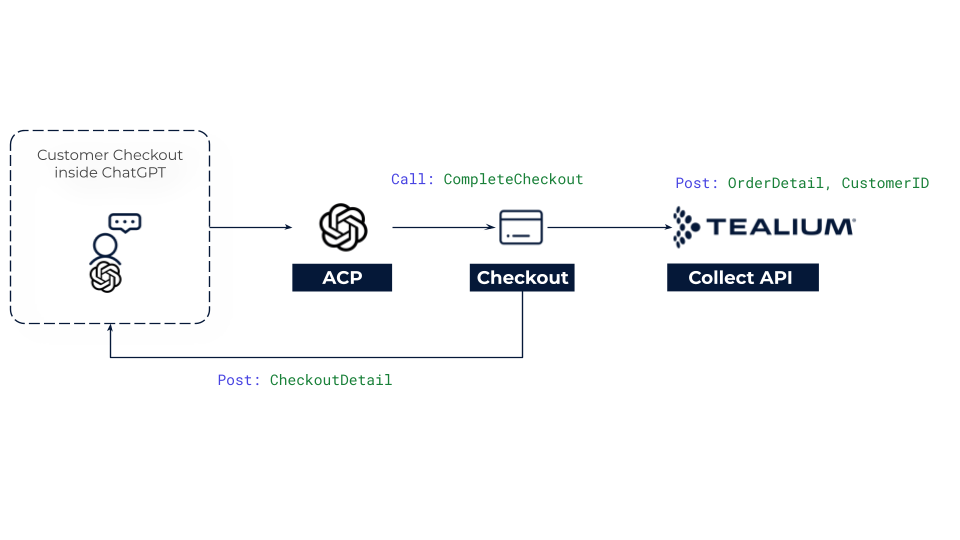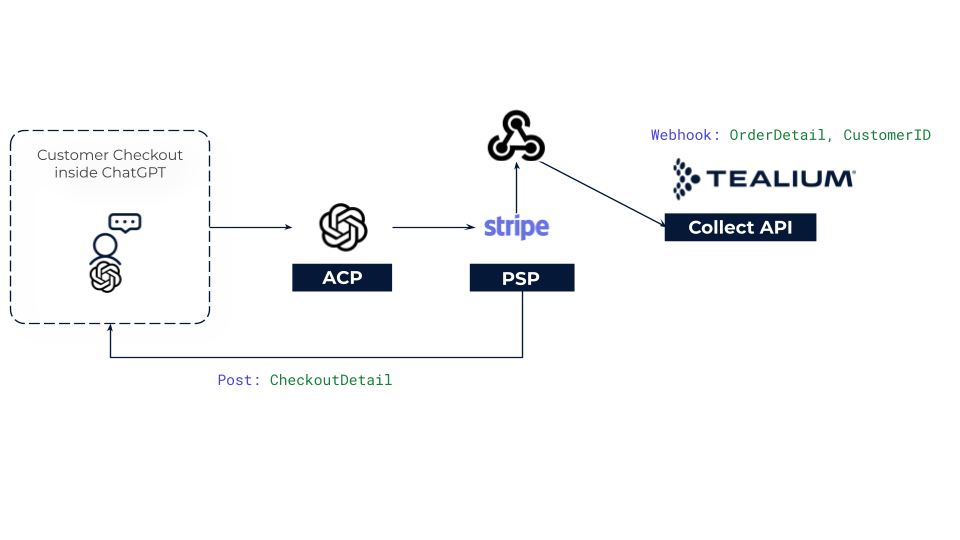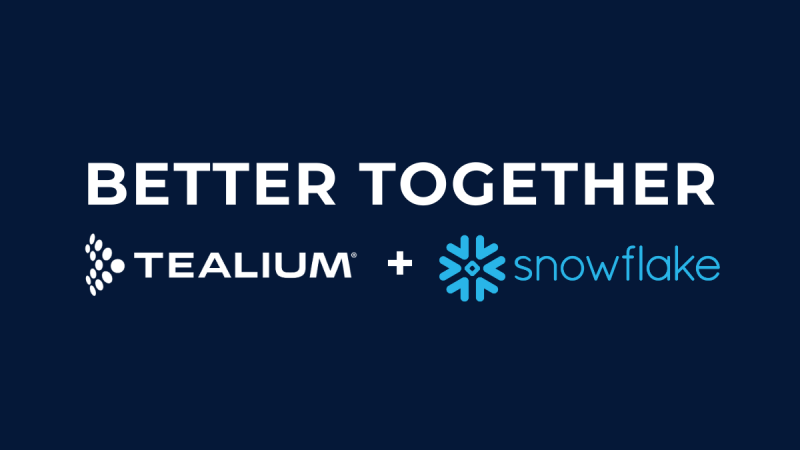This week OpenAI introduced Instant Checkout, powered by the new Agentic Commerce Protocol (ACP), an open standard co-developed with Stripe. This marks the beginning of a shift where AI agents don’t just recommend products, rather they complete transactions directly inside the agent experience (e.g., ChatGPT), while the merchant still remains the seller of record.
For Tealium, this represents a major opportunity: every new surface where commerce happens still needs accurate, compliant data collection. That includes AI-driven transactions on platforms merchants don’t directly own or operate.
What ACP Does
The Agentic Commerce Protocol (ACP) is designed to give AI agents a safe, standardized way to transact:
- Checkout inside the agent: The customer sees product details and pays without leaving the agent (like ChatGPT).
- Seller remains in control: Your backend API handles order creation, payment processing, and fulfillment.
- Lifecycle endpoints: The agent calls Create, Update, Complete, or Cancel endpoints, while you confirm payment and persist the order.
- Events and webhooks: Sellers can emit post-purchase events or subscribe to PSP webhooks for reliable order tracking.
In short, ACP centralizes the agent UI but keeps the merchant’s backend – and therefore their data, compliance, and reporting – at the core.
Where Tealium Fits
The key question: can ACP transactions trigger a custom web outbound so you can capture purchase details in Tealium even though the UI is offsite? The answer: yes.
There are two main integration points:

Option A: Direct trigger at CompleteCheckout
- When ACP calls your CompleteCheckout endpoint, you confirm the payment (via Stripe, Shopify, etc.) and finalize the order.
- At that moment, you POST an event into the Tealium Collect HTTP API, including all order details and identifiers.
- This captures the conversion even without a pageview or JavaScript tag firing on your site.

Option B: Off your PSP or platform webhooks
- If you’d rather not modify checkout code paths, you can subscribe to payment provider (e.g., Stripe) or platform (e.g., Shopify) order webhooks.
- Transform those webhook payloads and forward them into Tealium Collect.
- This ensures redundancy, and if your checkout handler fails, the webhook still fires a purchase event.
What the Event Should Contain
When sending the transaction into Tealium Collect, include a rich payload so downstream tools can stitch, enrich, and activate:
- Order details: order_id, subtotal, tax, discounts, shipping, total, currency
- Line items: sku, name, category, qty, price
- Channel context: channel = acp_instant_checkout, agent_surface = chatgpt
- Identifiers: customer_id, hashed email/phone, loyalty_id (whatever’s available and consented)
- Consent flags: your latest marketing consent state
This aligns ACP transactions with the same consumer identifiers and event model as your website, apps, or in-store systems.
Why This Matters
- AI commerce is here: Etsy is already live in ChatGPT using ACP, along with Shopify.
- Merchants stay merchant-of-record: You keep control over orders, payments, and data.
- Data quality is at stake: Without instrumentation, ACP conversions could fall into a blind spot.
- Tealium closes the gap: With server-side Collect events and identity stitching, ACP purchases flow into the same data pipelines you already manage.
A Quick Proof of Concept
To test this out today, you’d:
- Implement ACP’s minimal endpoints (Create/Update/Complete/Cancel).
- Confirm payments via your PSP (e.g., Stripe PaymentIntent).
- On success, POST a purchase event to Tealium Collect with the schema above.
- Subscribe to PSP webhooks as a fail-safe and forward them to Tealium.
- In EventStream, set up an Event Spec acp_purchase and route to analytics, ad platforms, or your warehouse.
- In AudienceStream, stitch with customer_id or hashed identifiers to tie ACP orders into visitor profiles.
The Takeaway
Agentic commerce will open entirely new surfaces for transactions, from chatbots to voice assistants to AR experiences. But the rules don’t change: merchants need visibility, identity stitching, and compliance baked into every channel.
With ACP, the seller’s backend remains in the loop. That means Tealium customers can instrument AI-driven commerce the same way they do for web, mobile, or in-store events. This ensures no blind spots in data nor privacy as the industry shifts toward agent-first experiences.



